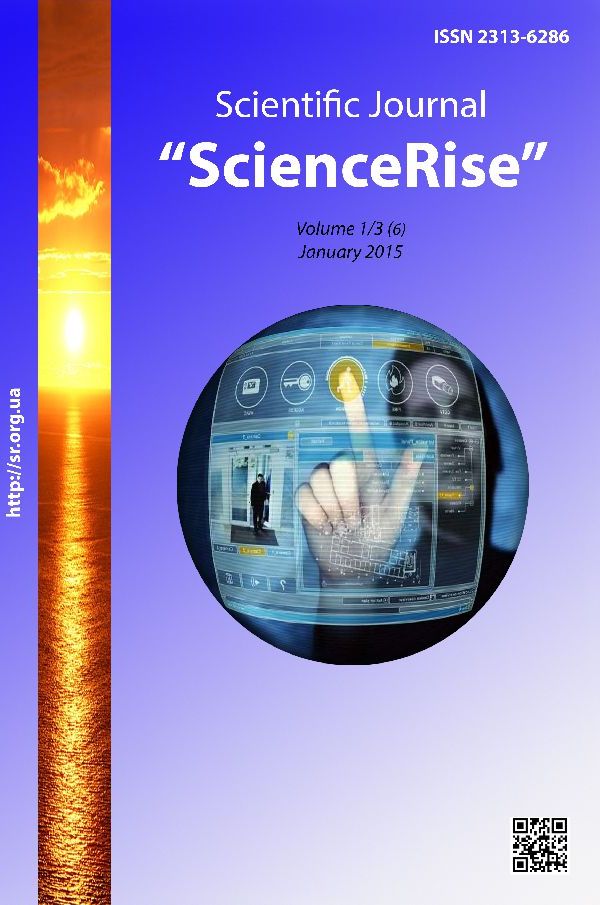Health of workers in petrochemical industry
DOI:
https://doi.org/10.15587/2313-8416.2015.36500Keywords:
workers, petrochemical industry, state of health, professionally related diseasesAbstract
Due to the increasing demand for products of the petrochemical industry and the construction of new petrochemical complex in the Russian Federation, the study on the health status of 88 workers of petrochemical production has been conducted. According to the study set a trend increase in the prevalence of chronic non-communicable diseases, depending on the length of service that does not preclude the influence of harmful factors on the formation of production due to the pathology of the digestive system, circulatory system, ear and mastoid process. The accumulated data indicate the need for prevention of identified diseases and different clinical entities
References
Karamova, L. M., Karimov, L. K., Basharova, G. R. (2006). Occupational hazard for health workers chemical and petrochemical plants. Ufa, 306.
Raabe, G. K., Wong, O. (1996). Leukemia mortality by cell type in petroleum workers with potential exposure to benzene. Environmental Health Perspectives, 104, 1381. doi: 10.2307/3433194
Kapustin, V. M. (2010). The current state of Russian equipment for the oil refining and petrochemical. Chemical Engineering, 5, 10–13.
Koh, D. H., Kim, T. W., Yoon, Y. H., Shin, K. S., Yoo, S. W. (2011). Lymphohematopoietic cancer mortality and morbidity of workers in a refinery/petrochemical complex in Korea. Safety and Health at Work, 2 (1), 26–33. doi: 10.5491/shaw.2011.2.1.26
Ryabov, V. A. (2010). The main problems of the Russian oil refining and petrochemical. Chemical Engineering, 10, 5–8.
Sumarchenkova, I. A. (2009). Analysis of environmental risk and consequences of accidents at refineries and petrochemical. Science and sustainable development of society. Heritage V. I. Vernadsky, 9, 261.
Tabarintseva, L. V. (2010). Automating the process of examination of industrial safety in the design of petrochemical and oil refining. Advances in chemistry and chemical technology, 14 (10), 120–124.
Wang, S. L., Wang, X. R., Chia, S. E., Shen, H. M., Song, L., Xing, H. X., Chen H. Y. (2001). A study on occupational exposure to petrochemicals and smoking on seminal quality. Ong CN. J Androl., 22 (1), 73–78.
Xu, X., Cho, S. I., Sammel, M., You, L., Cui, S., Huang, Y., Ma, G., Padungtod, C., Pothier, L., Niu, T., Christiani, D., Smith, T., Ryan, L., Wang, L. (1998). Association of petrochemical exposure with spontaneous abortion. Occupational and Environmental Medicine, 55 (1), 31–36. doi: 10.1136/oem.55.1.31
Mezencev, A. A. (2010). Analysis of the actions of petrochemical companies to address environmental. Transportation business in Russia, 8, 178–181.
Meschakova, N. M., Dyakovich, M. P., Shayakhmetov, S. F. (2012). The dynamics of health problems among workers of modern chemical production. Bulletin of the East Siberian Scientific Center of the Academy of Medical Sciences., 2, 87–91.
Mihayluts, A. P., Pershin, A. N., Maksimov, S. A. (2005). Impact on workers' health professional chemical production and environmental pressures harmful substances. Bulletin of the East Siberian Scientific Center of the Academy of Medical Sciences, 8, 141–144.
Izmerov, N. F. (2005). Guide hygienic evaluation factors of working environment and labor process. Criteria and classification of working conditions. Bulletin of normative and methodological documents Gossanepidnadzora, 3 (21), 3–144.
Downloads
Published
Issue
Section
License
Copyright (c) 2015 Ахат Бариевич Бакиров, Гульнара Галимяновна Бадамшина, Галина Ганиевна Гимранова, Эльвира Тимерьяновна Валеева, Оксана Валерьевна Валеева, Рустем Аскарович Даукаев

This work is licensed under a Creative Commons Attribution 4.0 International License.
Our journal abides by the Creative Commons CC BY copyright rights and permissions for open access journals.
Authors, who are published in this journal, agree to the following conditions:
1. The authors reserve the right to authorship of the work and pass the first publication right of this work to the journal under the terms of a Creative Commons CC BY, which allows others to freely distribute the published research with the obligatory reference to the authors of the original work and the first publication of the work in this journal.
2. The authors have the right to conclude separate supplement agreements that relate to non-exclusive work distribution in the form in which it has been published by the journal (for example, to upload the work to the online storage of the journal or publish it as part of a monograph), provided that the reference to the first publication of the work in this journal is included.

